http://www.ted.com/talks/angela_lee_duckworth_the_key_to_success_grit?language=enMany years ago I used to read the fable of the Tortoise and the Hare to my boys. Still, I often reference the value of the tortoise’s work ethic of moving ‘slow and steady’ when my children rush through their daily tasks such as homework, chores or piano practice. I would say there are times in my life where I am like the hare. It turns out that the turtle was onto something! This ‘stick-to-it-iveness’ quality of the tortoise is known as GRIT.
I’ve watched young athletes struggle through drills with unfailing perseverance to become top notch athletes and students overcome perceivably unsurmountable obstacles to achieve great success in school. I recently listened to Angela Lee Duckworth’s powerful Ted talk. She calls the ability to sustain passion and commitment in meeting long term goals “grit”. I believe grit contributes to the success these individuals achieve.
In her TED talk, Angela Lee Duckworth refers to grit as living life more like a marathon than a sprint. Angela has shown that IQ is not the only difference between best and worst performing student and answers the question, “Why do some of our most talented students not do as well as they could?” Talent doesn’t make someone  gritty. It doesn’t help a person stay committed to things.
gritty. It doesn’t help a person stay committed to things.
The idea of grit resonates with me because of its connection to growth mindset, a topic of several recent blogs. A growth mindset is the belief that one can learn with hard work and determination. Angela shares that students with a growth mindset tend to be grittier. By having a growth mindset students are more likely to persist when they fail because they don’t believe failure is permanent.
I believe strongly in a rigorous curriculum, as reflected in many posts about curriculum related topics. But imagine the impact on student learning when academics are combined with motivational factors such as growth-mindset and the grit to sustain and commit to achieving goals!
We know that intelligence is something that can grow. What about motivational characteristics like grit? How do we get students to be determined and to stick with things? Angela Lee Duckworth states that this requires further research. Even so, I already believe that deliberate practice, following your passion and modelling the value of making mistakes can only have a positive impact on student motivation. How do you think grit is instilled?
A link to Angela Lee Duckworth’s TED Talk “The Key to Success? Grit”
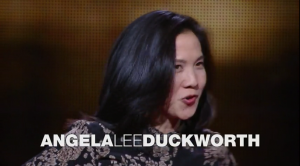
|| click image to see video ||
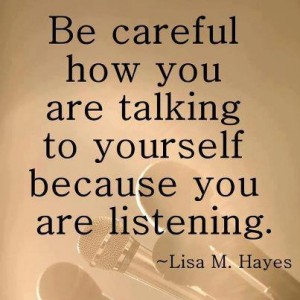 “I’ve just never been good at math.” “Math is not my thing.” You’ve likely heard statements like this many times (I might be guilty myself). Interestingly, a colleague of mine recently pointed out that when it comes to reading, people are far less likely to be proclaiming similar statements. Why is this? It is because we live in a culture that accepts a phobia toward mathematics as status quo. I say this not to criticize people who are uncomfortable with mathematics, but rather to reflect on the message we send to students about learning mathematics and, in turn, to consider that by simply changing our math mindsets, we can influence students in believing that they too can be successful in mathematics.
“I’ve just never been good at math.” “Math is not my thing.” You’ve likely heard statements like this many times (I might be guilty myself). Interestingly, a colleague of mine recently pointed out that when it comes to reading, people are far less likely to be proclaiming similar statements. Why is this? It is because we live in a culture that accepts a phobia toward mathematics as status quo. I say this not to criticize people who are uncomfortable with mathematics, but rather to reflect on the message we send to students about learning mathematics and, in turn, to consider that by simply changing our math mindsets, we can influence students in believing that they too can be successful in mathematics.
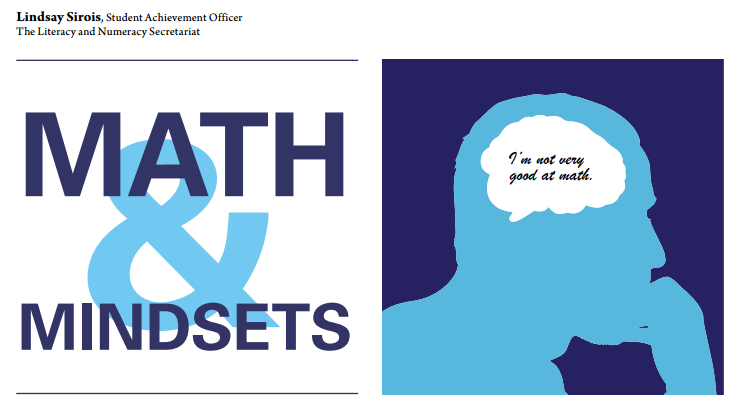
 From time to time I like to share with you the professional learning that our staff participates in to support student learning. This week I was fortunate to attend two separate professional learning forums; one on mathematics and the other on special education. Although the learning focus at each session was different what the forums had in common was time for reflection.
From time to time I like to share with you the professional learning that our staff participates in to support student learning. This week I was fortunate to attend two separate professional learning forums; one on mathematics and the other on special education. Although the learning focus at each session was different what the forums had in common was time for reflection. am surrounded by in our parents, staff and even our students – often they see outcomes and possibilities I could never have imagined.
am surrounded by in our parents, staff and even our students – often they see outcomes and possibilities I could never have imagined.


 teach you how to respond to questions like, “Where does energy come from? “ or, “What would the world be like if we could stop aging from happening?” Consider the skills necessary for students to respond to these promising questions beyond a Google search. I am not suggesting the abandoning of math facts or word study, but rather the integration of learning through rich questions taking students to levels of learning that, “What is size of the sun?” cannot take them.
teach you how to respond to questions like, “Where does energy come from? “ or, “What would the world be like if we could stop aging from happening?” Consider the skills necessary for students to respond to these promising questions beyond a Google search. I am not suggesting the abandoning of math facts or word study, but rather the integration of learning through rich questions taking students to levels of learning that, “What is size of the sun?” cannot take them.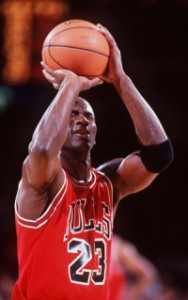 I have often been described as an optimist. Truth be told, I have always thought that believing good things will happen is the first step towards good things actually happening. I remember hearing that, before taking a foul shot, the famous basketball player, Michael Jordan would visualize the ball going into the basket. This always stuck with me.
I have often been described as an optimist. Truth be told, I have always thought that believing good things will happen is the first step towards good things actually happening. I remember hearing that, before taking a foul shot, the famous basketball player, Michael Jordan would visualize the ball going into the basket. This always stuck with me.

 Earlier this year I shared with you the three expectations that students at Emily Stowe Public School are expected to follow throughout the year:
Earlier this year I shared with you the three expectations that students at Emily Stowe Public School are expected to follow throughout the year: I recently read a blog entitled “What’s Your Job.” The blog made me to reflect on my job as an educator. Steve Jobs said it well, ““The only way to do great work is to love what you do.” Teaching is the career that I have chosen because I love what I do. I genuinely want to make a difference in the lives of the students that I work with. I want Emily Stowe to be a place that everyone wants to be on a daily basis.
I recently read a blog entitled “What’s Your Job.” The blog made me to reflect on my job as an educator. Steve Jobs said it well, ““The only way to do great work is to love what you do.” Teaching is the career that I have chosen because I love what I do. I genuinely want to make a difference in the lives of the students that I work with. I want Emily Stowe to be a place that everyone wants to be on a daily basis. You have probably heard of the 3 Rs, in education. What about the fourth R – Resiliency? Resiliency is the ability to bounce back from setbacks, learn from failure, be motivated by challenges and believe in your own abilities to deal with the stress and difficulties in life. Resiliency skills are as important as the other 3 Rs because every child’s life will be touched by setbacks as well as achievement, pain as well as joy, loss as well as triumph. In order for children to reach their fullest potential they need to know how to approach life with resilience. What you might not know is that, just like reading, writing and arithmetic, resiliency can be learned. Children learn from their parents, teachers and coaches – how to develop the skills of resilience. Resilience enables your child to thrive no matter what life puts in his or her path.
You have probably heard of the 3 Rs, in education. What about the fourth R – Resiliency? Resiliency is the ability to bounce back from setbacks, learn from failure, be motivated by challenges and believe in your own abilities to deal with the stress and difficulties in life. Resiliency skills are as important as the other 3 Rs because every child’s life will be touched by setbacks as well as achievement, pain as well as joy, loss as well as triumph. In order for children to reach their fullest potential they need to know how to approach life with resilience. What you might not know is that, just like reading, writing and arithmetic, resiliency can be learned. Children learn from their parents, teachers and coaches – how to develop the skills of resilience. Resilience enables your child to thrive no matter what life puts in his or her path.
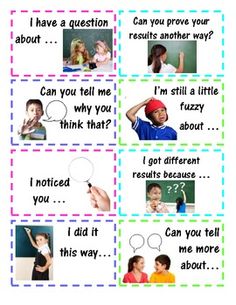 There was a time when I believed good teaching meant knowing all of the answers. Now I would argue that good teaching is asking the right questions. This shift in thinking has influenced my responses to parents when I am posed with questions about how parents can support their children in learning mathematics at home.
There was a time when I believed good teaching meant knowing all of the answers. Now I would argue that good teaching is asking the right questions. This shift in thinking has influenced my responses to parents when I am posed with questions about how parents can support their children in learning mathematics at home.